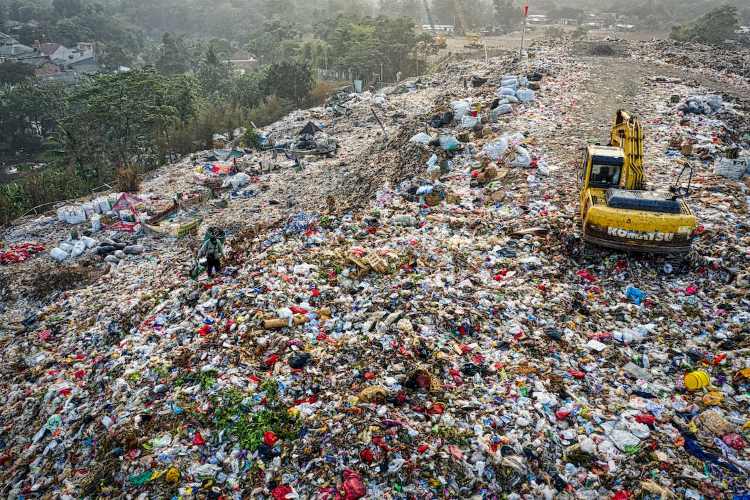
The battle against plastic pollution requires a multifaceted approach, blending scientific advancements, practical actions, and creative endeavours. This analysis delves deeper into groundbreaking solutions from different parts of the world. It will also discuss strategies to gain a panoramic view of the intricate web of solutions aiming at tackling plastic pollution menace.
Plastic pollution, a global scourge, necessitates innovative measures to mitigate its ecological and societal consequences. This analysis embarks on an expedition to unveil a spectrum of pioneering strategies, uniting scientific innovation with practical engagement.
READ I Sustainability: An enabler for just economic transition
Scientific solutions to plastic pollution
The development of novel plastic recycling methods, capable of processing previously non-recyclable plastics, holds the key to curbing waste accumulation. By disassembling plastic into its elemental components, scientists forge a pathway towards circular plastic use. Biodegradable plastics, a triumphant response to non-biodegradable counterparts, harness the power of bacteria to dismantle plastics into eco-friendly fragments. The discovery of plastic-consuming organisms introduces an unexpected yet promising ally in the fight against plastic pollution, hinting at the remarkable potential of nature’s resilience.
A reduction in single-use plastics emerges as a foundational strategy, promoting the use of reusable alternatives like bags and water bottles. The act of recycling, while well-known, carries substantial impact when embraced by communities worldwide. Amplifying this impact requires support for businesses adopting sustainable practices, prompting consumers to champion eco-conscious endeavours. At the crux of these efforts lies education and awareness, empowering individuals to make informed choices and ignite collective change.
A remarkable paradigm shift has emerged —the utilisation of insect waste to craft biodegradable plastics. The discarded carcasses of black soldier flies, typically dismissed as waste, become the bedrock of innovation. Within these carcasses lies chitin, a biopolymer with immense potential. Through meticulous extraction, chitin transforms into chitosan, a bioplastic precursor. This revolutionary approach not only reduces reliance on conventional plastic sources but also transforms waste into a sustainable treasure trove, ushering in a circular plastic production model.
By harnessing polyethylene’s molecular resemblance to fatty acids, researchers devise a method to upcycle plastic into soap and detergent components. This inventive process bridges the gap between plastic waste and cleaning industries, envisioning a future where plastic’s potential is harnessed for positive change. The simplicity and cost-effectiveness of this approach hold promise for large-scale implementation, revolutionising recycling practices.
Confronting the plastics predicament
In the relentless tides of modernity, an insidious threat has quietly woven itself into the fabric of our lives—plastic pollution. A consequence of our convenience-driven society, the ubiquity of plastics has led to an environmental crisis of unprecedented magnitude. From pristine beaches to bustling cities, plastic waste knows no bounds, infiltrating ecosystems, poisoning wildlife, and jeopardising human health. Plastic pollution’s intricate web of consequences has struck a discordant chord, echoing the urgency of finding innovative solutions that resonate on a global scale.
As the world grapples with the magnitude of this challenge, the imperative to act becomes undeniable. The reports’ exploration of pioneering solutions illuminates a path forward—one that traverses the realms of scientific discovery, individual responsibility, and inventive reimagining. The scientific community’s tireless pursuit of new frontiers is poised to redefine how we interact with plastic. Breakthroughs in recycling methods, the advent of biodegradable plastics, and the discovery of plastic-consuming organisms stand as testaments to human ingenuity. Yet, this scientific symphony requires an audience to champion its crescendo.
Enter the individual—the collective force capable of orchestrating change. A reduction in single-use plastics, active recycling participation, and support for eco-conscious businesses embody a harmonious chorus of actions that reverberate far beyond personal spheres. The power of advocacy and education cannot be understated, as these ripples of awareness transform into waves of societal transformation.
The ingenuity of humanity extends even further, transcending conventional boundaries. The exploration of insect waste as a wellspring of biodegradable plastics and the inventive transformation of plastic into soap components paint a portrait of resourcefulness. These endeavours epitomise the convergence of nature’s wisdom and human innovation, paving the way for a symbiotic relationship between progress and sustainability.
In the face of plastic pollution, the challenges are myriad, yet the call to action resounds with unyielding urgency. The very essence of our planet hangs in the balance, demanding nothing short of a paradigm shift. The solutions presented across these reports signify more than innovative mechanisms; they embody a beacon of hope—a testament to the collective resilience and determination to usher in a plastic-free future.
As we navigate this intricate dance between challenge and solution, the importance of finding a harmonious balance between progress and environmental preservation becomes paramount. The multifaceted nature of plastic pollution necessitates a tapestry of strategies, a united front where scientific acumen, individual agency, and inventive prowess converge. The journey ahead is not devoid of hurdles, but it is through the collision of these endeavours that a transformative future emerges—one where plastics no longer enslave our world but become catalysts for change.
In this symphony of solutions, every individual has a role to play, every innovation a note to contribute. It is the harmonisation of these notes that will compose a symphony of change, resonating across the globe. Together, we must heed the call and rise to the challenge, weaving a narrative of hope, resilience, and collective responsibility. The time to confront the plastics predicament is now—a clarion call to create a legacy of stewardship, ensuring a planet free from the shackles of plastic pollution for generations to come.
(This article has been written with artificial intelligence inputs.)

